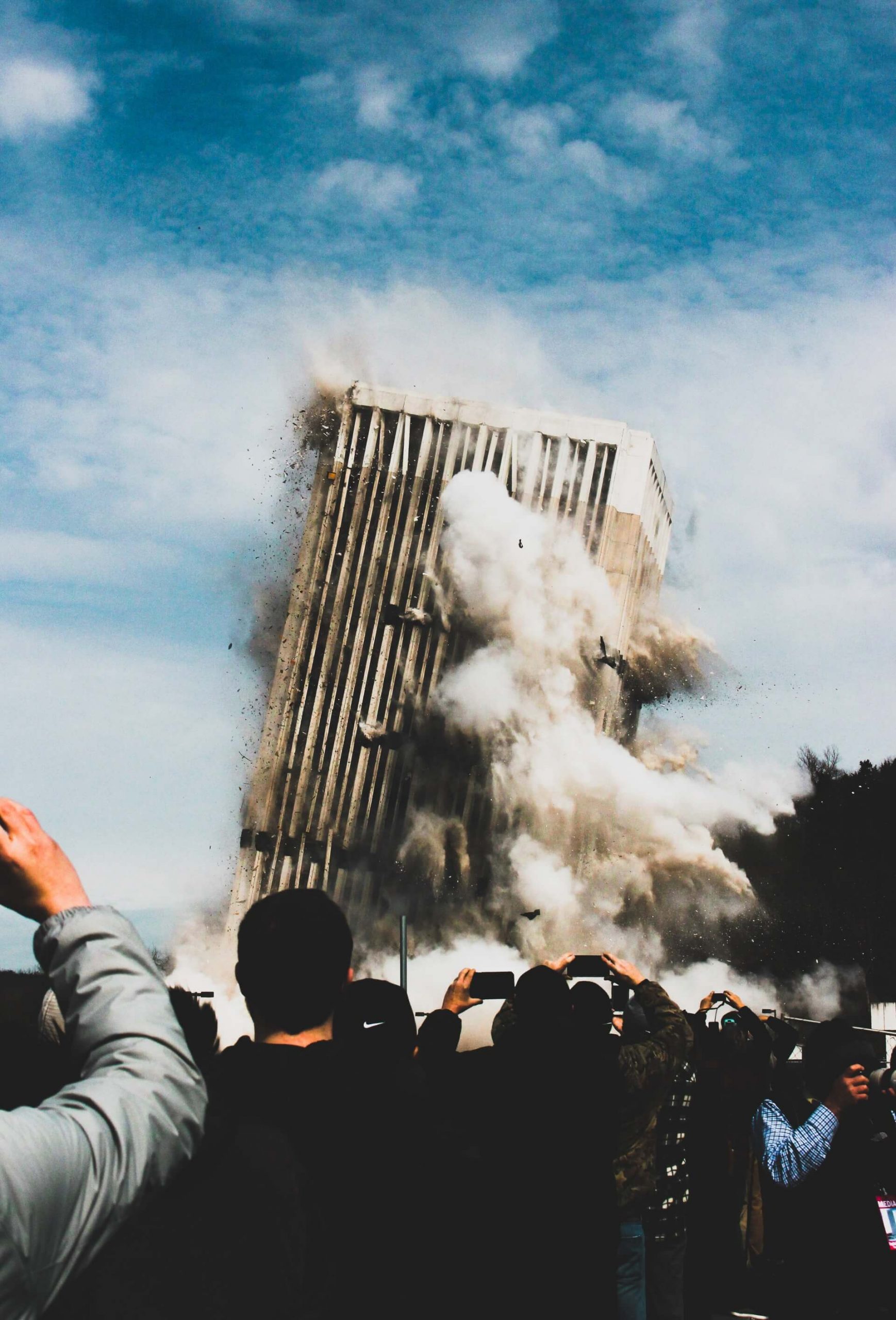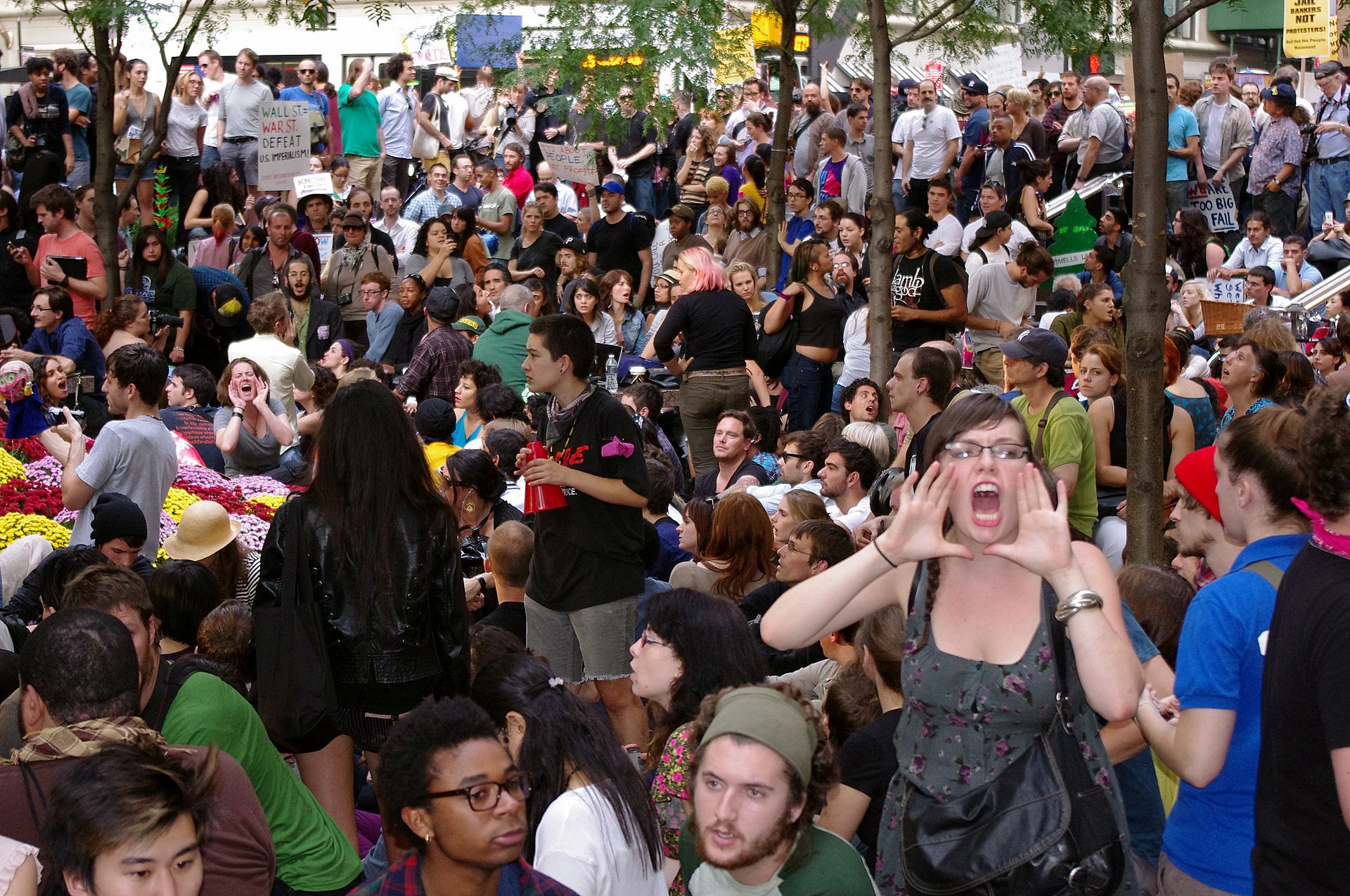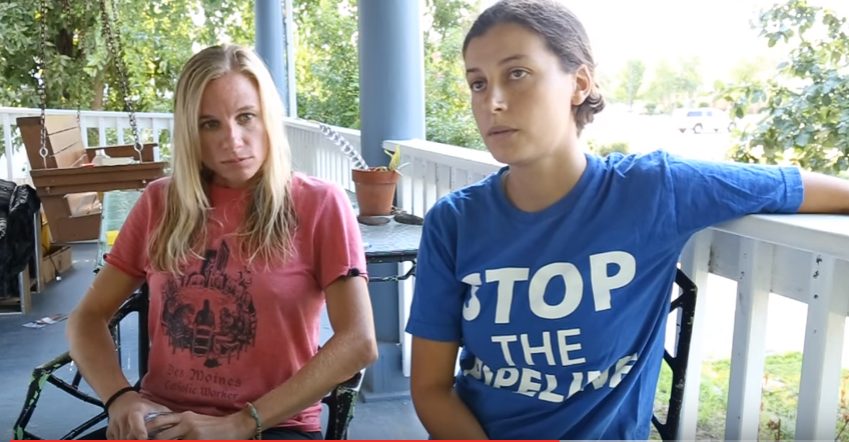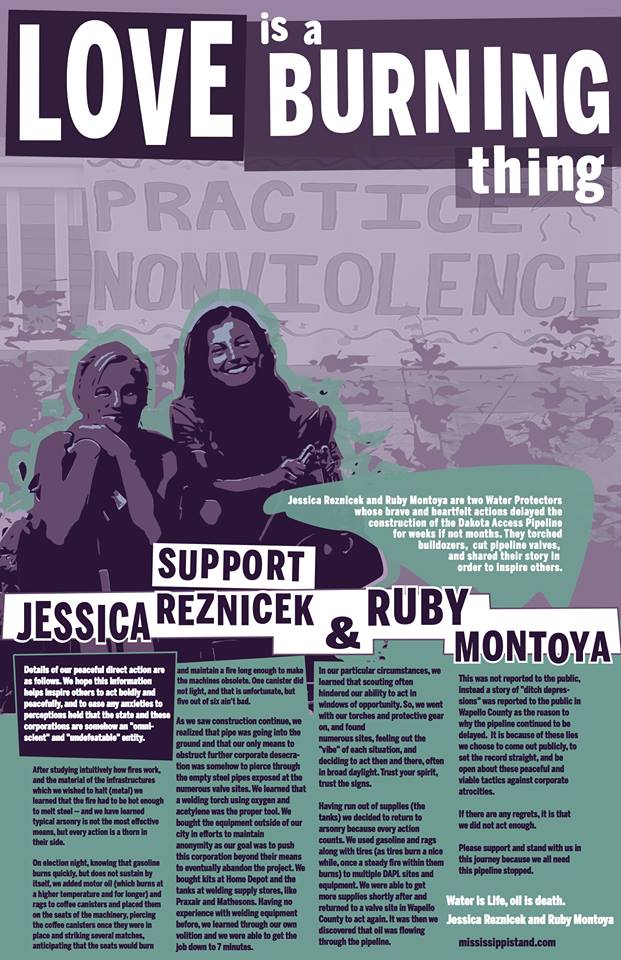
Guns, Land, and Chickens Won’t Save You
As the book Deep Green Resistance reminds us, there are certain aspects of collapse that are positive (declining oil demand, for example) and others that are negative (e.g., rising patriarchal, racist elements). This piece from Vince Emanuele argues that individualist survivalism is often an anti-social response to the social problems we are facing, and that we must organize as communities to survive.
Guns, Land, and Chickens Won’t Save You
by Vincent Emanuele / Counterpunch
“We are condemned to be modern. We can’t escape the facts of our history or of living in an age dominated by instrumental rationality, even as we look for ways out of it… But it has become our historic responsibility to acknowledge the continuing importance of myth, at a level beyond science, in realizing a more organic, holistic relation to the world. A future social ecology would transcend both anti-Enlightenment reaction and [a] reified Enlightenment counter-reaction, which remain only fragmented polarities within bourgeois modernity.”
– David Watson, Beyond Bookchin: Preface for a Future Social Ecology
Following the Great Recession of 2008, many of my friends started talking about “living off the land.” At the time, I didn’t give their words much thought. After all, Obama was in the White House; Neoliberalism was on the rise; imperial wars raged abroad, and the antiwar movement was falling apart.
During those dark and tumultuous years, my primary focus was building the sort of left institutions that could prevent the situation in which we now find ourselves: a nation on the brink of collapse, civil war, or some combination of the two. Sometime around 2010, I started reading about the connections between climate change and the U.S. empire and militarism, which led me to research and learn more about ecological devastation and biodiversity loss.
The global picture was much grimmer than I had imagined.
Not only was capitalism and empire destroying human life, but it was also destroying the planet. At that point, I began to better understand my friends’ urge to “move to the countryside,” but I didn’t agree with their vision. To me, it seemed like a uniquely white and middle to upper-middle-class thing to do. It also seemed like the easy way out.
I remember thinking, “I don’t know too many black or Hispanic people who are starting small farms.” And I still don’t. That’s not because they’re not interested in doing so. Black and Hispanic Americans simply don’t have the material resources to start small farms, which require land (money), equipment (money), time (money), specialized skills (access), and various other resources (money and access).
Plus, I don’t know too many black or Hispanic people who are champing at the bit to live in Southern Indiana, northern Wisconsin, or rural Montana, whereas many of my white friends wouldn’t blink an eye moving to those regions. And I sure as hell don’t know of any poor people who have the resources to do any of the above. They’re happy if they can go out to eat at a sit-down restaurant once a month.
If we’re genuinely interested in building multiracial coalitions of working-class people who are capable of combating capital, the military-industrial complex, corporate power, state repression, and rightwing nationalism, we can’t do it from the isolated countryside. We can’t do it from the safety of a family farm, totally detached from the day-to-day realities facing the very people, disproportionately black and Hispanic, but also poor whites, we need to build relationships with if we hope to win.
Urban communities, churches, schools, workplaces, bars, social and sporting clubs, recreational centers, community centers, and neighborhoods provide fertile organizing terrain for leftists. According to the U.S. Census Bureau, roughly 80% of Americans live in urban areas. By 2050, studies suggest that 66% of the global population will live in cities. Those numbers will only grow with time.
If you live in rural Iowa, you depend on people in New York City, Mexico City, and Tokyo.
You’re not some sort of lone-ranger-cowboy-farmer: you’re wholly dependent upon petroleum-based products, including everything from fertilizers and fuel to equipment and cleaning products. Multinational corporations produce those goods. International banks finance production. All of this requires international agreements, governments, legal apparatuses, and the like. Global supply chains provide your equipment. And the fuel that runs your equipment is extracted, refined, shipped, and distributed on a global scale. You’re not living a ‘sustainable life’ — you’re just as part of the global economic system as anyone else, hell, even more so than low-wage workers who live in cities.
Whoever controls the cities and, to some degree, the suburbs, will control the nation. Cities are the lifeblood of capitalism. Capital dwells in cities, not rural areas. Lockheed Martin depends on Wall Street. BP depends on Lockheed Martin. Corporate headquarters, executives, and lenders are located in cities. The bulk of their customers reside in cities. The economic activity that takes place in cities supports the flow of capital which facilitates capitalism.
Our enemies, both visible (corporations, governments, militarized police) and invisible (capital) reside in cities, not the countryside.
Furthermore, think about the past 20 years of social movements and political uprisings: the ‘Battle For Seattle’ (urban environment); the antiwar movement (largely based in urban environments); Occupy Wall Street (cities), the pro-union occupation in Madison, Wisconsin, (urban environment/college town), Black Lives Matter uprising in Ferguson, Missouri, (urban/suburban environment), and the current wave of Black Lives Matter uprisings, occupations, marches, and the like (yes, throughout the country, but primarily based in urban environments). The only notable exception is Standing Rock. Even the teachers’ strikes that swept the nation a few years ago were based in cities and suburban school districts. The same is true of insurgent socialist electoral campaigns.
At some point, I realized that many of the people, including my friends, who’ve moved to the countryside to start small farms aren’t interested in building political movements, fighting back against corporate and government power, or creating a better world. They’re interested in survival, yet they know nothing about survival. They didn’t grow up in the woods. They don’t live off the land. They use power tools. They use cars, and fuel, and technology, and all the rest. To the degree they’re able to “live off the land,” it’s only because modernity has allowed them to do so with minimal risk.
They believe, näively, that they can survive as a small family unit in a world of 7.8 billion people. They can’t even organize their family members or close friends to get on the same page, let alone function as a tribe or small community, yet they believe they’re going to live in some sort of self-sustainable fantasy land of yesteryear? It’s a joke, but it’s also dangerous.
The ‘back-to-the-land’ movement in the U.S. has a long history.
For the sake of time and courtesy, I won’t bore you by revisiting its history. In today’s context, however, the ‘back-to-the-land’ movement operates comfortably within the framework of Neoliberal ideology. Hyper-individualism is the religious dogma that fuels the ‘back-to-the-land’ movement. Only someone totally detached from the broader global community would be able to convince themselves that they can survive in this world with minimal social cooperation.
The same people who talk about ‘living off the land’ are the same people who say things like, “I’ve gotta look out for mine,” or “My family is the only thing that matters.” This parochial worldview is not uncommon in the U.S., especially since the Reagan Revolution. The Cult of Individuality infects virtually every aspect of modern U.S. culture, from politics and economics to sports, film, art, and social relations. This is evident when I see pictures of my friends hiding out in their quasi-secluded countryside homes, tending to chickens and growing tomatoes, while the country and world collapse in real-time.
Speaking of collapse, the people who think they’re going to hide out in relative safety as the world crumbles around them are so detached from reality that it’s hard to seriously consider where they’re coming from, but I’ll try.
Let’s say you live 60-120 miles outside a major city (this would apply to many of my friends in Northwest Indiana or Southwest Michigan who own property). If the economy collapses (due to any number of factors), or if the country devolves into a civil war, perhaps even a revolution, or a nuclear war, or a cataclysmic ecological disaster, you’re fucked. If cities become unlivable, you’re fucked. If suburbs become unlivable, you’re fucked.
You and the family are going to hunker down at the homestead, and the hundreds of thousands or millions of people who live within a week’s walk aren’t gonna discover your property? Oh, you have guns? So what? Have you ever used them in a combat situation? How often do you and your family drill? How often do you shoot? How big is your family? Big enough to fend off hoards of people traversing the countryside in search of food, shelter, and safety?
What are you going to do if we can’t stop governments (U.S., Israel, Pakistan, India) from triggering a nuclear conflict? As one Wired headline put it, “Even a Small Nuclear War Could Trigger a Global Apocalypse.’ You can’t stop nuclear wars from your chicken coup. You can’t stop nuclear wars with your daddy’s shotgun. You can’t stop nuclear wars with organic produce. And you can’t stop nuclear wars with gluten-free home-cooked bread.
Only internationally coordinated political campaigns and movements can stop a potential nuclear war.
What are you and your family going to do when tens of millions of Americans are migrating across the U.S. as a result of runaway climate change and rapidly changing weather patterns, ecologies, and natural landscapes? What’s your plan? To mow down thousands of people fleeing natural disasters? Is that how you want to live? Do you think they’re not going to shoot back? Do you think your property won’t, at some point, also become uninhabitable due to climate disaster?
My advice to people who think they’re going to survive a collapsing society? Take a flight to Libya, Somalia, Pakistan, Iraq, Afghanistan, Syria, or Yemen, then tell me about your absurd and childlike ‘collapse’ fantasies. Nothing is inspiring, humane, or decent about living in a fractured and crumbling society. The glorification of violence, destruction, and death in U.S. culture is, to say the least, quite disturbing. There’s nothing cool or sexy about banditry, religious mobs, sectarian violence, terrorism, torture, or wanton violence. Americans (mostly white people who grew up in the suburbs) hoping for collapse should spend more time in places that have experienced collapse. It’s not like the movies (or your imagination).
In the end, there’s no hiding from what’s coming.
Climate change is a global problem. Capitalism, the primary driver of climate change, is a global economic system. Each of us lives within its grips, unfortunately. The only way to stop or mitigate what’s coming is through collective action on a massive global scale. Either we make it out of this mess together, or none of us make it out alive. It’s that simple. Our collective challenges require national and international solidarity. We must build relationships, bonds, trust, and networks across geographical, ethnic, racial, and religious boundaries.
Regional or local solutions won’t suffice. Regional and local solutions will contribute, but we need an international vision to address 21st-century challenges. And that international vision won’t be cultivated by those living ‘off the grid.’ Any international vision worth considering must prioritize large-scale (global) projects. Large-scale solutions can only be developed democratically and equitably through collective decision-making processes that incorporate diverse political movements from around the globe.
I became a leftist because Marx’s and Engels’s writings, particularly those in the Communist Manifesto, resonated with me on a very deep level. Their writings didn’t encourage me to run away to the countryside and relive some sort of 18th-century ‘back-to-the-land’ fantasy. Their writings inspired me to build relationships and organize with working-class people around the globe in the hope that, someday, we will overthrow this terrible system (capitalism).
Today, we need a vision that’s inspiring, complex, and flexible (always willing to adapt to changing circumstances), but also principled.
Without a principled vision of how to proceed, we’ll continue to spin our tails resisting the latest excesses of capitalism, empire, or racism, without accomplishing much. People joined socialist and communist movements because those movements inspired poor and working-class people through ideology and action.
If our vision doesn’t include those who don’t have the means to escape ‘back-to-the-land,’ what sort of vision is it? The left should seek to include, not exclude, people. I’m not interested in building more walls (visible or invisible), internal borders, or tribal social relationships. The right does a fine job of inciting reactionary worldviews.
The left’s vision should be about more than simply surviving the coming storm. We need a vision that inspires and motivates people from around the world to join our movements, campaigns, and organizations. That can’t happen in seclusion. It can only happen through intentionally building broad, deep, and sustained social relationships with people from around the globe.
Vincent Emanuele writes for teleSUR English and lives in Michigan City, Indiana. He can be reached at vincent.emanuele333@gmail.com.
This article was originally published in Counter Punch on September 11, 2020. You can read the article here:





